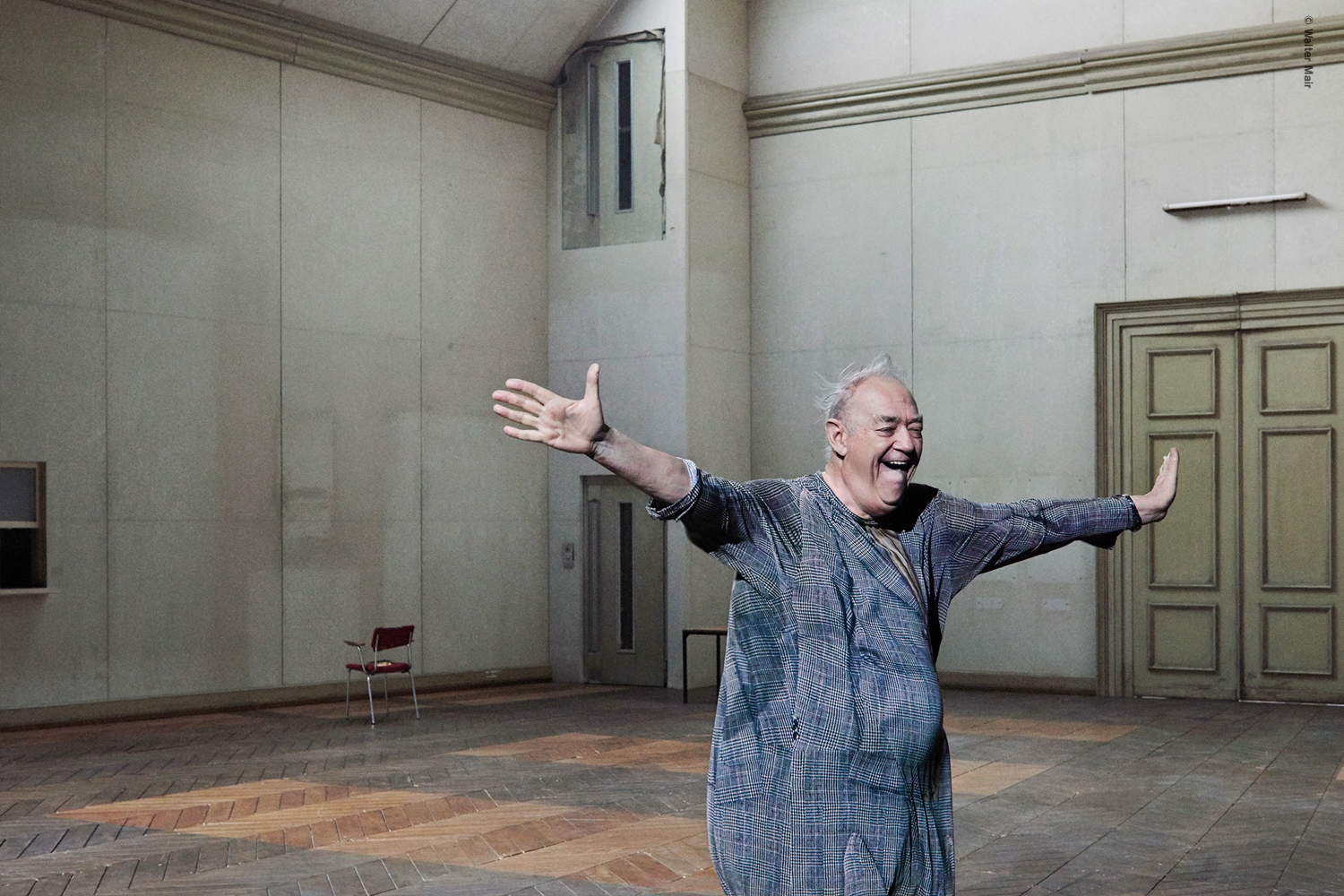


In “The Meistersinger of Nuremberg” (1868), Richard Wagner reflects the political conflict between progressive and conservative forces through an esthetical conflict, a singing contest. As Frank Castorf makes a detour to the opera, he takes Wagner’s contradictions very seriously. On a stage designed by Jonathan Meese, the inequalities of this work become a test arrangement for revolutionaries, between battle field and playroom, saloon and prison cell, subvention and subversion. Together with tenor Christoph Homberger and pianists Christoph Keller and Stefan Wirth, Castorf delivers a concentrated, boundless version of the opera. Outside the star-obsessed opera business, actors become Wagner singers. Employees of the cafeteria, administration and trades modify production conditions to make up the chorus of a functioning people’s theatre, or Volksbühne. By introducing also Ernst Toller’s revolutionary drama “Masses Man” (1919), Castorf poses the question of the relationship between the individual and the collective in an expressionistic theoretical postulate.
With: Christoph Homberger (Walther von Stolzing), Max Hopp (Sixtus Beckmesser), Sophie Rois (Eva), Silvia Rieger (Pogner/Magdalene), Bernhard Schütz (Hans Sachs), Winfried Wagner (David), Axel Wandtke (Fritz Kothner), Frank Bauszus (Chorsolisten), Anna Charim (Chorsolisten), Ruth Rosenfeld (Chorsolisten) and Chor der Werktätigen
Director: Frank Castorf
Stage Designer: Jonathan Meese
Light Design: Torsten König
Music: Christoph Homberger, Christoph Keller, Stefan Wirth, Christoph Homberger, Christoph Keller, Stefan Wirth, Jan Czajkowski, David Marton, Christoph Keller, Stefan Wirth, Noa Niv, Wolfgang Dunst, Nathan Plante, Istvan Szarka, Eva Schraube, Stephanie Hupperich, Sandrine Brammer, Almute Zwiener, Kim Witt
Dramaturgy: Jutta Wangemann
Coproduction of Volksbühne am Rosa-Luxemburg-Platz with Théâtre de la Ville de Luxembourg (L), Théâtre National de Chaillot, Paris (F) and Det Kongelige Teater, Copenhagen (DK).